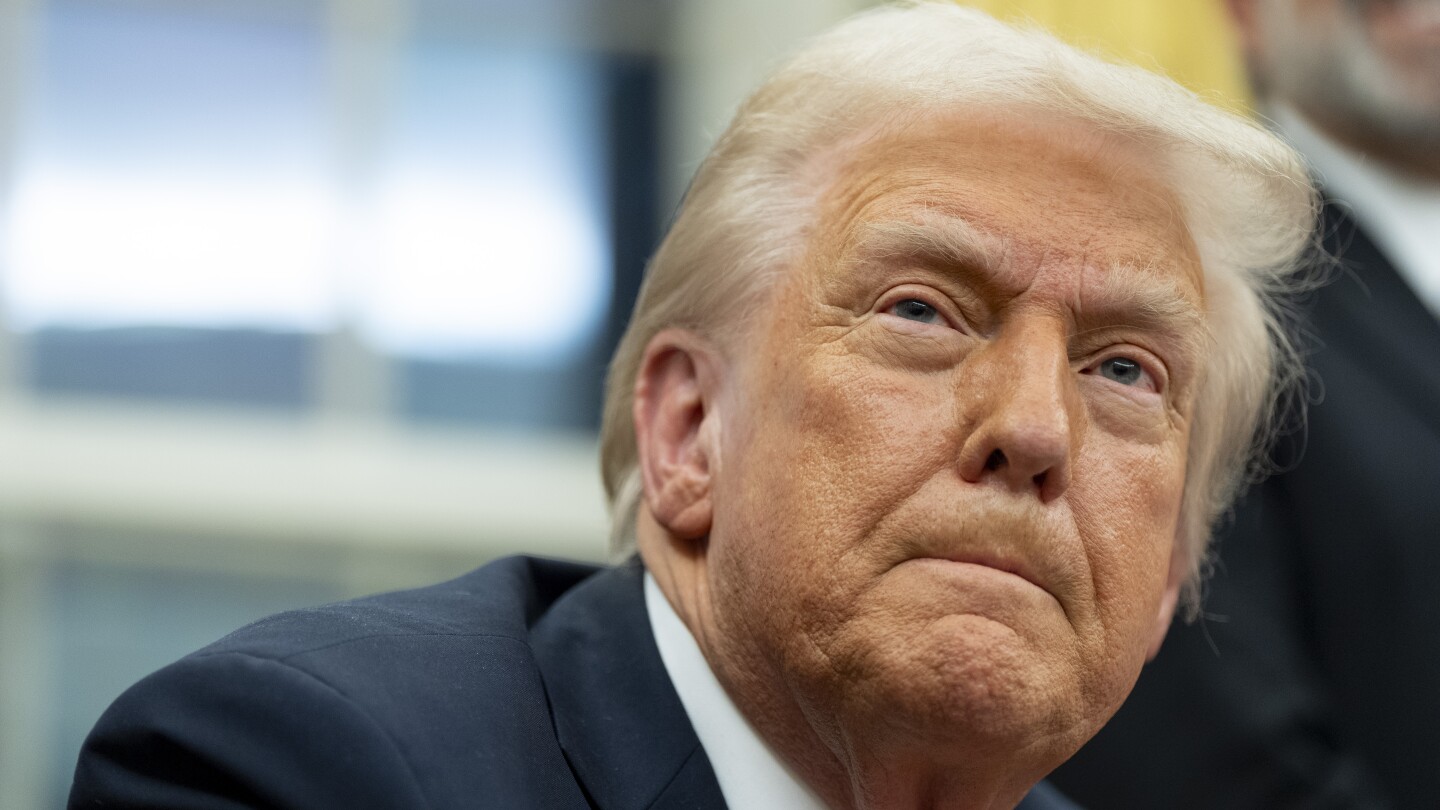Indian Border Security Force (BSF) soldiers stand guard at the entrance of the India-Pakistan Wagah border post, about 35kms from Amritsar on April 24, 2025. India took a raft of punitive diplomatic measures against Pakistan on April 23, accusing Islamabad of supporting “cross-border terrorism” after a deadly attack on civilians in Kashmir. (Photo by Narinder NANU / AFP) (Photo by NARINDER NANU/AFP via Getty Images)
Narinder Nanu | Afp | Getty Images
Asia-Pacific markets rose Monday after the White House announced a “trade deal” with China without providing specifics.
Both countries alluded to a positive conclusion of the high-stakes trade talks, with U.S. officials touting a deal to reduce its trade deficit, while Chinese leaders said that they have arrived at an “important consensus.”
U.S. Treasury Secretary Scott Bessent noted that the talks yielded “a great deal” of productivity. Meanwhile, Chinese Vice Premier He Lifeng said a joint statement containing “good news for the world” would be released on Monday.
Indian stocks also led gains in the region following India’s ceasefire with Pakistan over the weekend. The arch rivals were involved in intense firing — the worst in nearly three decades — with both sides exchanging fire with missiles and drones.
The benchmark Nifty 50 surged 2.29% at the open while the BSE Sensex gained 2.27%.
Hong Kong’s Hang Seng Index pared early gains to 0.88%, while mainland China’s CSI 300 index increased 0.61%.
Japan’s benchmark Nikkei 225 fell 0.17% while the broader Topix index lost 0.21% in choppy trade.
In South Korea, the Kospi index rose 0.49% while the small-cap Kosdaq edged 0.12% higher.
Over in Australia, the benchmark S&P/ASX 200 increased 0.17%.
U.S. futures jumped as investors await further details on the trade deal between the U.S. and China.
This comes after declines in the three key benchmarks on Wall Street in last Friday’s session.
The 30-stock Dow Jones Industrial Average lost 119.07 points, or 0.29%, and settled at 41,249.38. Meanwhile, the broad-based S&P 500 inched down 0.07%, closing at 5,659.91, while the Nasdaq Composite ended the session little changed, ending at 17,928.92.
— CNBC’s Yun Li, Fred Imbert, Pia Singh and Brian Evans contributed to this report.
Bitcoin falls, but remains above $100,000 threshold
Bitcoin slid on Monday, but continued to hold steady above the $100,000 threshold.
The cryptocurrency was down 0.42% to $103,859.94 as of 11.39 a.m. Singapore time.
The latest move is a reversal from its fast gains in the last week, which pushed investors to forecast that it will soon hit its which happened at the end of January.
Bitcoin prices
— Amala Balakrishner
Chinese defense stocks extend gains despite India-Pakistan ceasefire
Taiwan’s Taiex index rises over 1% amid rally in Asia-Pacific stocks
Taiwan’s benchmark Taiex index surged 1.12% as of 10.40 a.m. local time, as indexes across Asia-Pacific picked up over optimism of a trade deal between the U.S. and China.
Gains in the Taiex were broad-based and were led by the energy, utilities and technology sectors.
The top three performers were Alchip Technologies, which surged 10%, Lai Yih Footwear, which advanced 9.98% and Machvision, which added 9.97%,
Meanwhile, shares of tech giants Taiwan Semiconductor Manufacturing Co and Hon Hai Precision Industry — known globally as Foxconn — were last seen trading 0.95% and 3.4% higher, respectively,
The iShares MSCI Taiwan ETF shows the index’s moves:
iShares MSCI Taiwan ETF
— Amala Balakrishner
Hong Kong shares rally as investors await details on U.S.-China trade deal
Hong Kong’s Hang Seng Index surged 1.44% Tuesday, extending its gains for the eighth consecutive session.
Many major Chinese companies are listed on the index, which is up 15.64% since the start of the year. The strong gains were broad-based across sectors.
The Hang Seng Tech Index rose 2.43% as at 10.31 a.m. local time.
Top performers include Sunny Optical Technology Group, which gained 9.24%, Xpeng, which increased 6.65% and BYD Electronic International, which advanced 6.45%.
The Hang Seng Tech Index ETF shows the day’s moves:
Hang Seng Tech ETF
— Amala Balakrishner
China-listed shares of CATL surges over 3.4% following HK IPO filing
Australian mining stocks rise on optimism over U.S.-China trade deal
Australian mining stocks rose Monday on the back of optimism over a trade deal between the U.S. and China.
China is the largest importer of Australia’s mining products, such as iron ore and natural gas.
Gains were seen in major miners, with Fortescue adding 1.32%, Rio Tinto increasing 1.81% and BHP Group surging 2.26% as at 11.27 a.m. Australian Eastern Daylight Time.
Gold miners, meanwhile, trailed declines in gold prices.
Among the worst-performing stocks in the category were Bellevue Gold, which lost 2.56%, Newmont Corporation, which slid 2.71% and Evolution Mining, which plunged 3.88%.
— Amala Balakrishner
Bitcoin falls, but remains above $100,000 threshold
Bitcoin slid on Monday, but continued to hold steady above the $100,000 threshold.
The cryptocurrency was down 0.42% to $103,859.94 as of 11.39 a.m. Singapore time.
The latest move is a reversal from its fast gains in the last week, which pushed investors to forecast that it will soon hit its which happened at the end of January.
Bitcoin prices
— Amala Balakrishner
Spot gold sinks as investors cheer progress in U.S.-China trade talks
Spot gold plunged Monday as investors cheered early signs of progress in trade talks between the U.S. and China.
As at 9.20 a.m. Singapore time, the bullion was trading 1.85% lower at $3,262.29 per ounce.
Spot gold
The latest moves in the precious metal — which is a traditional hedge against political and financial instability — is a reversal from the 2.6% gain it notched the week before as investors sought refuge in it.
— Amala Balakrishner
Japan’s current account surplus hits $25.2 billion in March in line with estimates
Japan’s current account surplus came in at 3.68 trillion yen ($25.24 billion) in March, data released by the Ministry of Finance on Monday showed.
The reading is in line with estimates of economists polled by Reuters, but is a slight drop from the record 4.06 trillion yen surplus in the month before.
– Amala Balakrishner
















